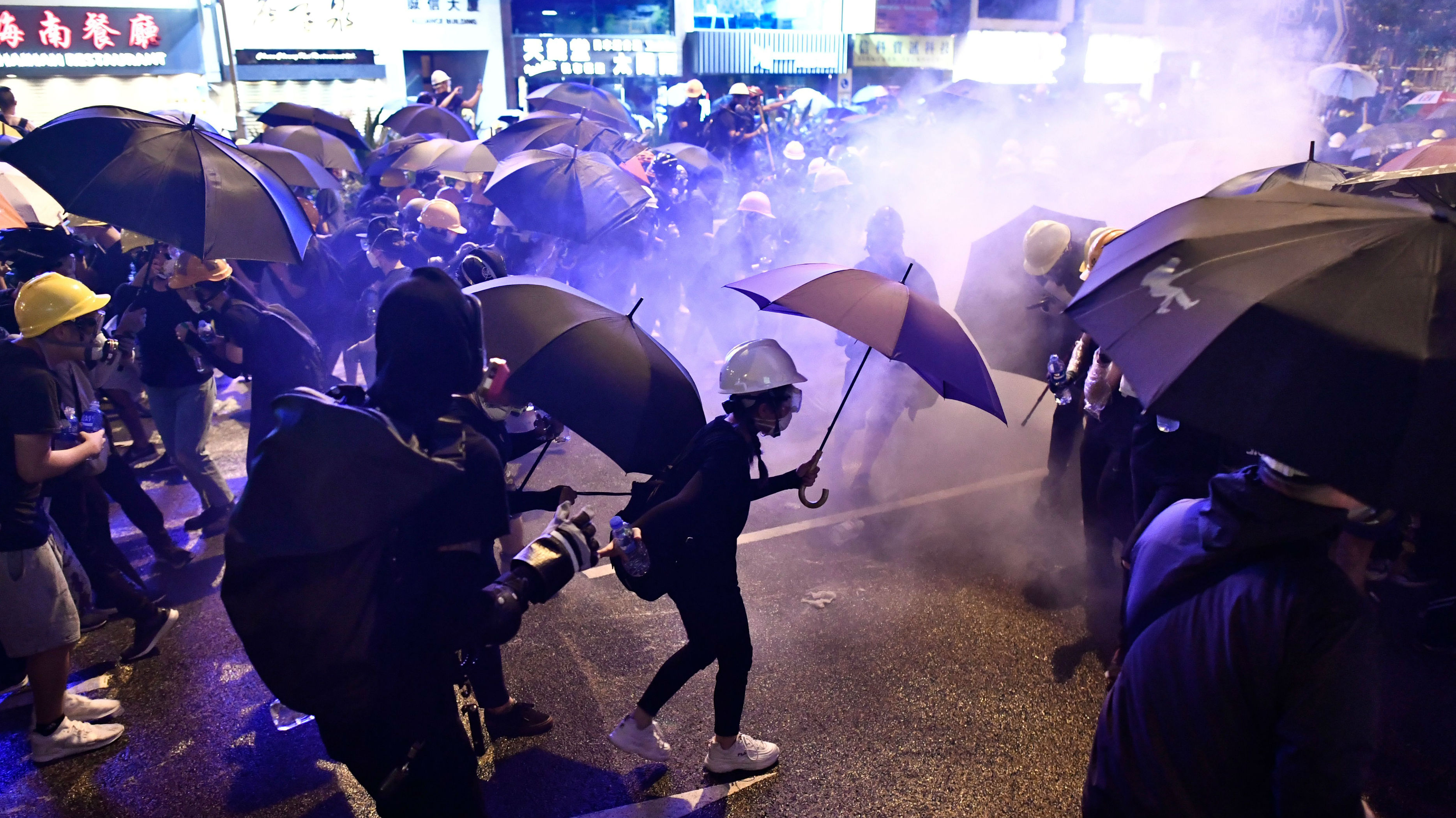Are we seeing the rise of the virtual protest?
Demonstrators from Israel to Spain are migrating onto the internet to spread their messages

A free daily email with the biggest news stories of the day – and the best features from TheWeek.com
You are now subscribed
Your newsletter sign-up was successful
Almost 600,000 Israelis have taken part in a “virtual protest” against Benjamin Netanyahu amid claims that the prime minister is using the coronavirus crisis to strengthen his grip on power.
The Israeli government has urged all citizens to stay at home during the outbreak, so protesters instead tuned in to an event broadcast on Facebook Live last weekend that saw celebrities, former judges and ex-heads of the country’s Mossad intelligence agency and Shin Bet security agency denouncing Netanyahu and his Likud party, The Telegraph reports.
Netanyahu is being accused of exploiting the global pandemic to delay his scheduled criminal trial on bribery and other corruption charges. He has also called for a national emergency government to deal with the impact of the outbreak in Israel - a move that many interpret as a cynical ploy to hold onto power following three deadlocked elections in the past year.
The Week
Escape your echo chamber. Get the facts behind the news, plus analysis from multiple perspectives.

Sign up for The Week's Free Newsletters
From our morning news briefing to a weekly Good News Newsletter, get the best of The Week delivered directly to your inbox.
From our morning news briefing to a weekly Good News Newsletter, get the best of The Week delivered directly to your inbox.
Speakers at the virtual protest included former Shin Bet head Yuval Diskin, who blasted both Netanyahu and Benny Gantz, chair of opposition party Black and White, reports The Times of Israel.
Criticising Gantz for his apparent willingness to serve in a government under Netanyahu, Diskin said: “Me and many others who voted for Blue and White solely because it was the least bad choice over the past few days have sadly discovered that we made a really bad choice.”
–––––––––––––––––––––––––––––––For a round-up of the most important stories from around the world - and a concise, refreshing and balanced take on the week’s news agenda - try The Week magazine. Start your trial subscription today –––––––––––––––––––––––––––––––
What other major protests have been held online?
A free daily email with the biggest news stories of the day – and the best features from TheWeek.com
Many protesters have turned to the internet during the ongoing unrest in Lebanon.
The New Arab reports that dissidents have used social media platforms such as Facebook and Twitter to broadcast information about what is happening in the country, which has been beset by economic problems and allegations of corruption against government figures in recent years.
Similar online tactics were used in the Middle East during the Arab Spring, when protesters were “empowered by access to social media sites like Twitter, YouTube and Facebook”, as Wired reported at the time.
However, fully digitised protests and rallies, like the one against Netanyahu, are in their infancy.
In 2015, Spanish protesters staged what The Independent described as the “first ever virtual political demonstration” in response to a controversial Citizen Safety Law. The legislation made it illegal to gather in front of government buildings, including universities to hospitals, without permission from authorities, with fines of up to €600,000 (£555,000) for defying the ban.
In response, a group called Holograms for Freedom organised a virtual protest video, with sympathisers worldwide invited to participate by webcamming their faces via the campaign website.
More than 2,000 virtual images were reportedly sent and screened during the hour-long hologram demonstration.
More recently, protesters in Hong Kong have taken part in a virtual rally to “sustain their movement’s momentum” during the coronavirus epidemic, says Bloomberg.
The Hong Kong Civil Assembly Team, a pro-democracy group, staged the online event in February to mark the six-month anniversary of the storming of a subway station by riot police, and councillors, activists and musicians were invited to speak and perform.
A group of Hong Kong students have also developed a virtual reality game that they hope will allow people to experience the anti-government demonstrations from the viewpoint of a “front-line protester”, adds Reuters.
One of the game’s developers, named only as Lam, told the news agency that the game had a “pro-protester” stance, allowing users to “scan the colourful post-it notes that make up the game’s ‘Lennon Wall’” - in this context, a reference to a wall outside Hong Kong’s Central Government Complex where protesters posted tens of thousands of handwritten notes advocating for freedom, democracy and universal suffrage.
The protesters were inspired by the original Lennon Wall in Prague, where anti-communists posted messages in the run-up to the so-called Velvet Revolution in 1988.